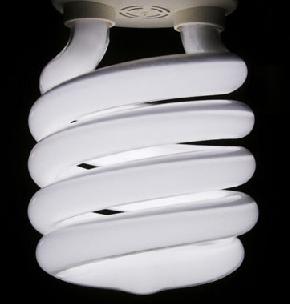Though many people pay a lot of attention these days to reducing their home electricity and gas consumption, and do a lot of recyling, it is often in the workplace / office where the biggest difference can be made. Many offices have all lights blazing all day long, multiple computers and other power hungry elecrical equipment on all the time, and generate vast amounts of recycleable waste which just go out in the rubbish.

Here are some tips to help you to reduce energy consumption and waste in the workplace. Note that every unit of electricity saved, every lost drip of water avoided, and every piece of waste avoided or recycled will reduce costs and therefore increase the profits of your business!
Lighting
Replace all light bulbs with energy efficient light bulbs.
Turn off lights when they are not needed.
Remove any decorative or non-essential lighting.
Put up mirrors to reflect natural light and reduce your dependence on artificial lights.
Install automatic motion detecting lights in rarely used rooms.
Ensure that external lights and lit signage is turned on and off with a timer rather than being left on 24 hours per day.
Equipment
When replacing old and inefficient equipment, buy energy efficiency rated equipment.
Unplug everything that can be unplugged when not in use.
Don’t leave anything on standby – e.g. turn off your monitor when you are taking a break. Don’t forget that the screensaver on your monitor is not a ‘power saver’.
Where possible (and when you must print something out) do so in economy mode to reduce ink/toner consumption by 50%.
Set your chosen font to a very dark grey instead of black to use 20-30% less toner, but not reduce the quality of the printer output of your documents.
Use ink jet rather than laser printers if possible to reduce electricity consumption by as much as 80-90%.
Print in black and white rather than in colour to use 50% less electricity (and save money on ink/toner).
Use size reduction on the photocopier to fit multiple pages onto one sheet.
Heating
If possible, turn down the heating (or turn up the air conditioning) by a couple of degrees. An office should not be heated to above 19 degrees Celcius (position II to III with thermostatic radiator valves).
If heating unused spaces such as corridors and store cupboards, turn the heating right down.
Make sure that any programmed timings on the heating system match with the actual hours the office is occupied.
Keep doors and windows closed when the heating is on, and work to prevent draughts.
Make sure all radiators and storage heaters are unobstructed.
Business Related Travel
Use video conferencing and other communications technologies to reduce the need to travel.
Work from home to reduce commuting.
Share lifts with work colleagues sharing the driving and costs.
Water
Fix dripping taps and ensure that all toilet cisterns and urinals are working as they should.
Recycling (and waste avoidance)
Think before your print: only print out documents that really need to be printed, and print on both sides when you do so. If you only print on one side, use the reverse for written notes.
Using email or the telephone where possible greatly reduces the amount of paper used.
Have yourself removed from mailing lists and ask companies to contact you by email instead.
Use 100% recycled paper – ideally only 80g thick rather than the more expensive thicker papers available.
Have one wastebin in the office rather than one per desk, so people have to think before they throw something away, and the overflowing single bin is a visual reminder of the amount of waste being generated.
Buy cleaning materials in bulk to reduce packaging and costs.
Try and find an alternative use for any packaging materials rather than throwing it away.
Make notepads out of old paper.
Any More Ideas
If you have any suggestions for reducing energy consumption and waste in the workplace, please email them to neil@reuk.co.uk.